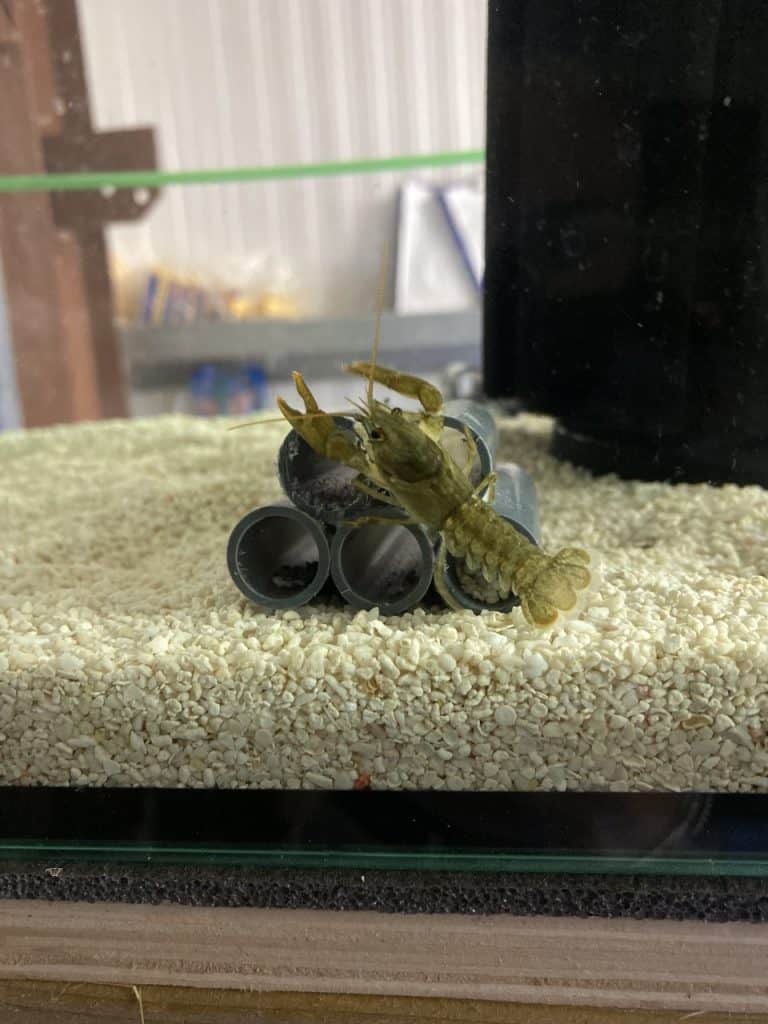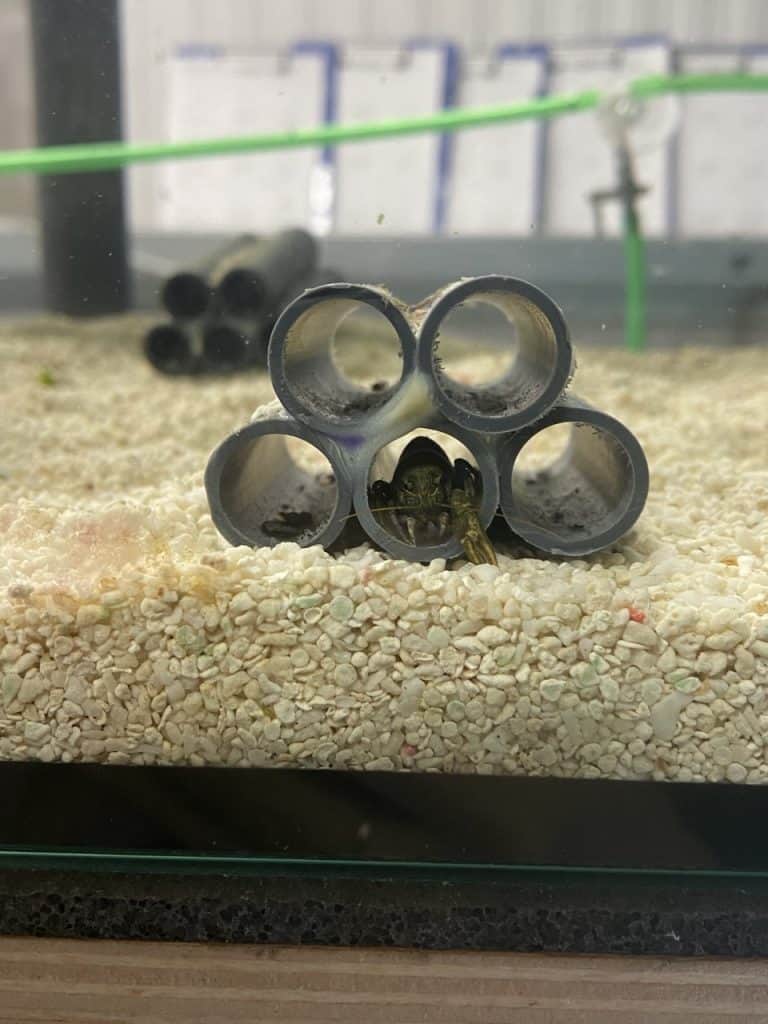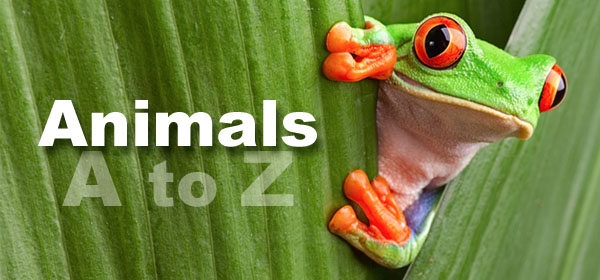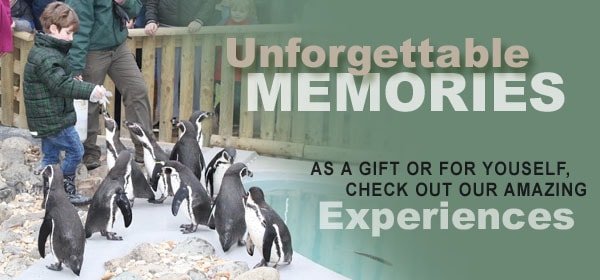On the 30th of June this year we welcomed 30 juvenile White Clawed Crayfish. An endangered species endemic to the freshwater streams of the UK. It is the only native crayfish species in the UK.
I am very pleased to announce that all 30 crayfish that arrived with us have been flourishing in our new crayfish hatchery within the bug house. They are all growing and doing extremely well, which shows in how many moults they have had. Most are now averaging around 4-5cm’s long. This is about half of their adult size. They can grow up to 12cm but are more likely to be around 10cm when fully grown.

Crayfish study
The invertebrate keepers have been working extremely hard and diligently with taking care of this important species. We are even conducting a study on where in the tanks each individual prefers to be. Whether that be in their hides, filters or preferring to be in the light or darker areas.

Breed and Release
Our aim is to hopefully be able to breed and release this species back into its natural habitat locally in Kent. To be able to do this we would be working in partnership with local government bodies, assessing suitable release sites. We are also working closely with Bristol Zoo who have their own breed to release program for this species in the Southwest.
For this to become a reality, we need to be able to prove we can care for them and to ensure that all bio-security measures are in place. This involves having specialist foot dips, separate equipment and only allowing trained staff within the crayfish area of the building.

Threats
The two biggest problems facing this species in the wild is the introduction of the North American Signal Crayfish and Red Swamp Crayfish. The latter is a natural carrier of crayfish plague which is deadly to our native species.
Crayfish plague is water mould that infects crayfish species and is very easy to spread.
The main other issue that this species faces is water pollution. Run-off from fields that have been sprayed with insecticides, insufficiently treated, or illegal untreated wastewater are all issues for these inverts.
It is an omnivore eating invertebrates, carrion, water plants and dead organic matter. They can live for up to 12 years.



